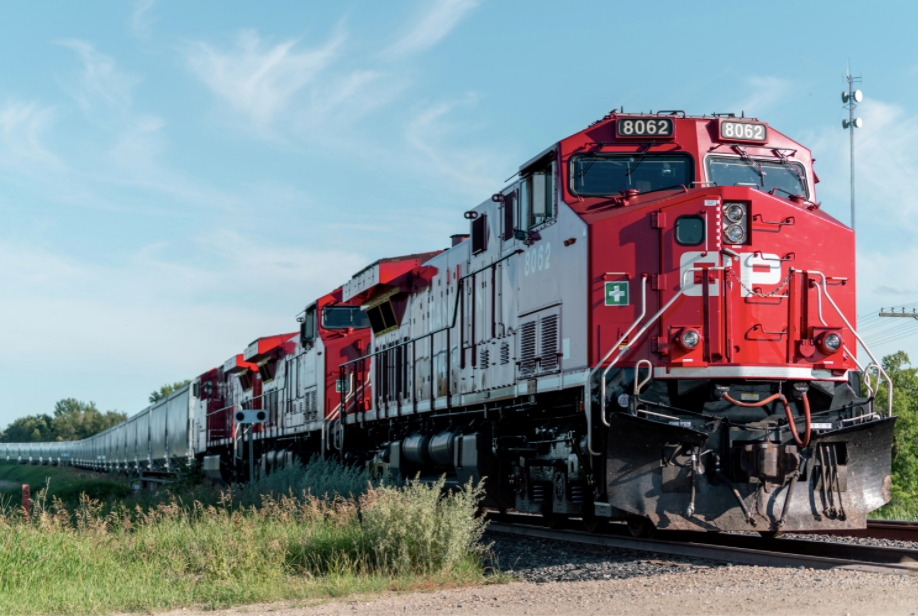Business and industrial associations across Canada are warning of “catastrophic” consequences for Canadian jobs and the economy from a national railway strike, following a ruling today by the Canadian Industrial Relations Board (CIRB) that a strike at both of Canada’s railways would not pose a “serious danger” to Canadians.
Thousands of unionized workers with Canadian National Railway (TSX:CNR) are poised to strike, and thousands more with Canadian Pacific Kansas City Ltd. (TSX:CP) will be locked out by the company on August 22, unless the company and Teamsters Canada Rail Conference (TCRC) can break a deadlock in negotiations.
“The decision to issue a lockout notice comes after the Canada Industrial Relations Board (CIRB) on Friday issued its decision determining that no services need to be maintained during a railway strike or lockout in order to protect Canadian public health and safety,” CPKC said in a news release.
The CIRB today ruled that there is nothing moved on Canadian railways that could be deemed critical to Canadians’ health and safety. However, it did also order a 13-day stay of any strike or lockout action.
“If no resolution is reached during bargaining through the extended cooling off period, and the TCRC continues to refuse binding interest arbitration, CPKC will have no choice but to take this action,” CPKC said in its news release.
"CPKC's decision to issue a lockout notice is both unexpected and needlessly antagonizing," said Christopher Monette, spokesperson for Teamsters Canada.
"With at least thirteen days of negotiations still ahead, this move represents an unnecessary escalation that goes against the principles of good faith bargaining that CPKC claims to uphold. Contrary to the company's assertions, their latest proposals include significant demands for concessions, such as the removal of critical fatigue countermeasures."
The Canadian Manufacturers and Exporters (CME) is calling on the House of Commons Standing Committee on Transportation to convene an emergency meeting to address a national railway strike.
“A national work stoppage of any length will have a catastrophic impact on Canadian manufacturers and their workers,” the CME said.
“This is the most important issue facing the Canadian economy and it is essential that all Members of Parliament hear directly from employers about the supply chain chaos and economic costs that a nationwide rail stoppage will impose on our economy.”
The Greater Vancouver Board of Trade (GVBOT) notes that Canada’s railways transport $1 billion worth of goods per day, and warns a national railway strike would bring the Canadian economy to “a halt.”
“Today’s CIRB ruling enables a full work stoppage on our rail system, which would leave Canadians with fewer access to goods and products, driving up prices, and worsening the affordability crisis,” GVBOT president Bridgitte Anderson said in a press release. “The livelihood of millions of workers will be put in jeopardy as our national economy grinds to a halt.
“Failing an agreement at the negotiation table we call on the Government of Canada to be on standby to use every tool in their toolkit to ensure that our rail system is back up and running as soon as possible to ensure that Canadians do not suffer at the hands of the few.”
Despite the CIRB's findings, it has been argued that certain goods moved by rail are, in fact, critical to the health and safety of Canadians. Chlorine, used to disinfect water, is one of them. About 10 per cent of the goods moved on Canada’s railways are chemicals, like chlorine, according to the Chemistry Association of Canada (CIAC).
“Chemicals needed for water treatment and sewage treatment are shipped by rail,” said CIAC CEO Bob Masterson. “Many of our members are captive to CPKC and/or CN – there are no viable alternatives for shipments.”
According to the Teamsters Canada Rail Conference (TCRC), the main obstacles at the bargaining table is company demands, not union proposals.
“Both companies want concessions on issues pertaining to crew scheduling, rail safety, and fatigue management,” the TCRC said in a news release in reaction to today’s CIRB decision.




